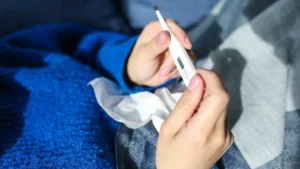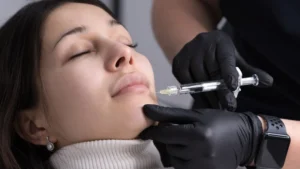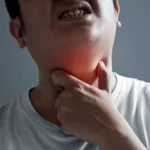Have you ever experienced that overwhelming fatigue after taking a round of antibiotics? You know, that bone-tired feeling that seems to cling to your body and suck the energy right out of you. You may find ways to combat fatigue from antibiotics.
Well, you’re not alone. Many people have reported feeling drained and exhausted after a course of antibiotics, and it’s no wonder why.
In this article, we’ll explore the causes behind this post-antibiotic fatigue and provide you with some practical tips on how to combat it.
Understanding the Connection Between Antibiotics and Fatigue
Antibiotics are undoubtedly life-saving medications that have revolutionized the field of modern medicine. However, as with any medication, they can come with side effects.
One such side effect that many people may not be aware of is fatigue.
Research has shown that antibiotics can disrupt the delicate balance of beneficial bacteria in our gut, leading to an overgrowth of harmful bacteria or yeast.
This imbalance, known as dysbiosis, can result in a range of symptoms including fatigue.

Mode of Action
When we take antibiotics, their primary function is to kill off harmful bacteria causing an infection. However, they also indiscriminately destroy some of the beneficial bacteria living in our gut.
These friendly bacteria play a vital role in aiding digestion and nutrient absorption while also helping us fight off infections by supporting our immune system’s functions.
Read More: What Does Pregnancy Fatigue Feel Like?
Furthermore, research suggests that certain types of harmful bacteria or yeast that flourish after antibiotic use produce substances known as endotoxins or mycotoxins.
These toxins can enter the bloodstream and cause symptoms such as fatigue by triggering inflammation throughout the body.
Causes of Antibiotic-Related Fatigue
Antibiotics play a crucial role in fighting bacterial infections, but they are not without their side effects. One common side effect that many people experience is fatigue.
While it may seem common sense that a medication meant to improve health can leave you feeling tired and drained, the reasons behind antibiotic-related fatigue are multifaceted.
Also, Kill Beneficial Bacteria
Firstly, antibiotics work by killing bacteria in the body, but unfortunately, they can also affect our beneficial gut bacteria. These friendly bacteria are essential for digestion and nutrient absorption.
When antibiotics disrupt this delicate balance, it can lead to digestive issues like diarrhea or constipation, which in turn can cause fatigue.
Disturb Immune System
Furthermore, antibiotics may indirectly contribute to fatigue by weakening the immune system. Our immune system is responsible for defending against harmful invaders such as bacteria or viruses.
However, when antibiotics indiscriminately kill both good and bad bacteria in our bodies, it weakens our immune response and leaves us susceptible to other illnesses or infections.
Dealing with multiple ailments at once places an additional burden on the body’s energy reserves and often results in fatigue.

How to Combat Fatigue from Antibiotics?
Rest
First and foremost, it’s essential to prioritize rest and sleep. Your body needs time to recover, so make sure you allocate enough hours for quality sleep each night.
Listen to your body when it tells you it needs a nap during the day.
Read More: When Does First Trimester Fatigue Peak: Understanding Pregnancy Exhaustion
Diet
In addition to ample rest, fueling your body with nutritious food is crucial. Antibiotics can disrupt the balance of beneficial bacteria in our gut, leading to digestive issues like diarrhea which can further deplete our energy levels.
Probiotics
Incorporating foods rich in probiotics such as yogurt or fermented vegetables into your diet can help restore that balance and alleviate fatigue.
Stay Hydrated
Furthermore, staying hydrated is vital as antibiotics may cause dehydration due to increased urination or fluid loss through diarrhea.
Drinking plenty of water throughout the day will not only counteract this but also boost your overall energy levels.
Light Exercise
Another effective way to combat fatigue during antibiotic treatment is by incorporating light exercise into your routine.
Although strenuous workouts are not recommended while recovering from an infection, gentle activities like walking or yoga can increase oxygen flow in your body and stimulate circulation, ultimately reducing feelings of tiredness.
Deep Breathing
Additionally, engaging in mindfulness practices such as meditation or deep breathing exercises may help calm the mind, improve focus, and provide an added mental boost during this challenging period.
Conclusion
In conclusion, combating fatigue from antibiotics is essential to ensure optimal recovery and overall well-being.
By implementing some simple strategies such as staying hydrated, getting enough rest, and eating a balanced diet, individuals can significantly reduce the impact of antibiotic-induced fatigue.
Additionally, engaging in light exercise or practicing relaxation techniques can help boost energy levels and alleviate tiredness.
t is also important to consult with a healthcare professional if fatigue persists or worsens.
By taking proactive measures and prioritizing self-care, individuals can effectively combat fatigue from antibiotics and promote a speedy recovery. Prioritize your health and take action against fatigue today!
FAQS
1. What causes fatigue when taking antibiotics?
Fatigue can be caused by several factors when taking antibiotics, including the medication itself, disruption of normal gut bacteria, and the underlying infection being treated.
2. How long does fatigue from antibiotics typically last?
The duration of fatigue can vary depending on the individual and the specific antibiotic being taken. It is usually temporary and resolves once the course of treatment is completed.
3. Can I take any steps to prevent or minimize fatigue while on antibiotics?
Yes, you can take certain measures to combat fatigue while taking antibiotics. These include getting enough rest, staying hydrated, eating nutritious meals, and avoiding strenuous activities.
4. Are there any specific foods or supplements that can help reduce fatigue during antibiotic treatment?
While no specific food or supplement is proven to directly reduce fatigue caused by antibiotics, maintaining a healthy diet rich in fruits, vegetables, whole grains, and lean proteins can support your overall energy levels.
5. Can I continue my regular exercise routine while experiencing antibiotic-related fatigue?
It is generally recommended to modify your exercise routine during periods of fatigue from antibiotics. Light exercises such as walking or stretching may be more suitable than intense workouts until your energy levels improve.
6. Are there alternative medications that cause less fatigue than others?
Different types of antibiotics can have varying effects on individuals’ energy levels. If you consistently experience severe fatigue with a particular antibiotic, discuss with your healthcare provider if an alternative medication could be considered.
7. Will caffeine or energy drinks help combat antibiotic-related tiredness?
While caffeine-containing beverages like coffee or tea might offer a temporary boost in alertness, it’s important not to rely solely on them for combating antibiotic-related tiredness. Adequate rest and a balanced lifestyle are key for recovery.
8. When should I consult my doctor about persistent or worsening fatigue while on antibiotics?
If your fatigue worsens over time or persists even after completing the entire course of antibiotics, it is advisable to consult your doctor. They can evaluate your symptoms and determine if further investigation or treatment is necessary.







